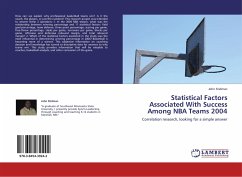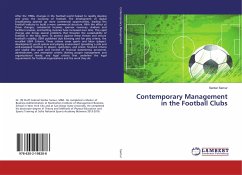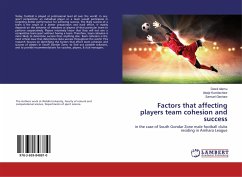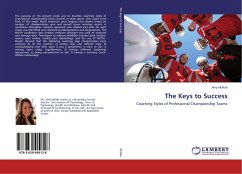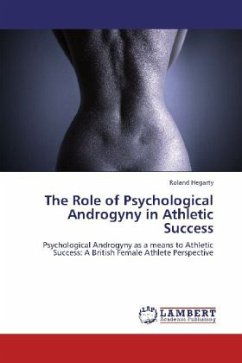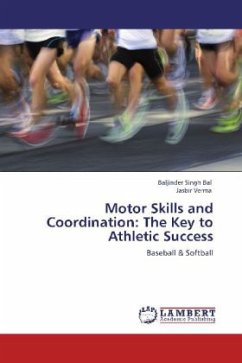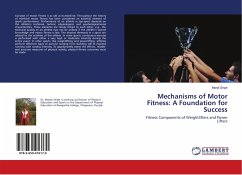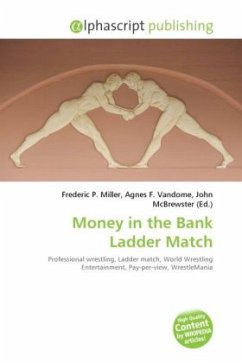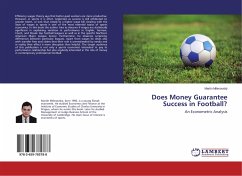
Does Money Guarantee Success in Football?
An Econometric Analysis
Versandkostenfrei!
Versandfertig in 6-10 Tagen
27,99 €
inkl. MwSt.

PAYBACK Punkte
14 °P sammeln!
Efficiency wages theory says that better-paid workers are more productive. However, in sports it is often neglected as success is still attributed to greater talent, or luck than simply to a higher wage bill. Dealing with the issue of wages in sports is one of the most essential topics of sports economics. In this book the author tries to discover if wages are statistically significant in explaining variation in performance in English, German, Czech, and Slovak top football leagues as well as in the specific Northern American Major League Soccer. Furthermore, he observes surprising differences...
Efficiency wages theory says that better-paid workers are more productive. However, in sports it is often neglected as success is still attributed to greater talent, or luck than simply to a higher wage bill. Dealing with the issue of wages in sports is one of the most essential topics of sports economics. In this book the author tries to discover if wages are statistically significant in explaining variation in performance in English, German, Czech, and Slovak top football leagues as well as in the specific Northern American Major League Soccer. Furthermore, he observes surprising differences between particular leagues. Apart from wages he deals also with transfer fees and claims that their role is overestimated by media and in reality their effect is more disruptive than helpful. The target audience of this publication is not only a sports economist interested in pay to performance relationship but also anybody interested in the role of money in contemporary professional football.



